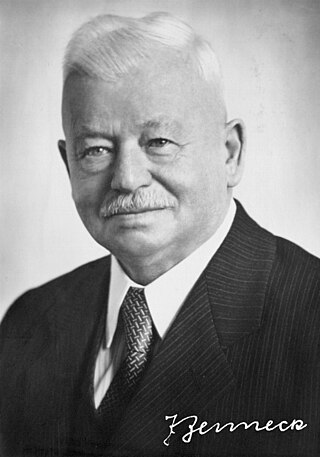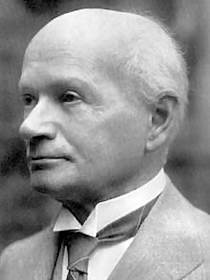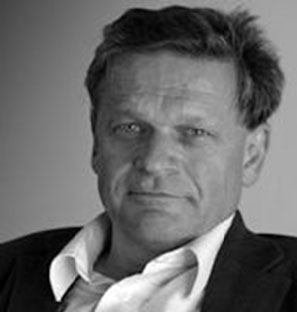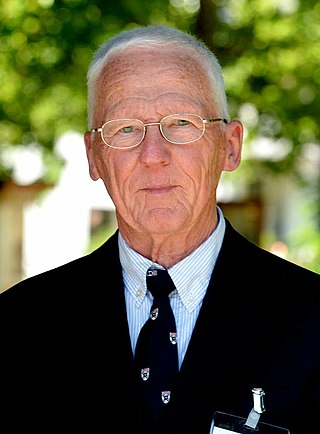This article has multiple issues. Please help improve it or discuss these issues on the talk page . (Learn how and when to remove these template messages)
|

Christoph Zenger (born 10 August 1940) is a German mathematician.
This article has multiple issues. Please help improve it or discuss these issues on the talk page . (Learn how and when to remove these template messages)
|

Christoph Zenger (born 10 August 1940) is a German mathematician.
Born in Lindau, Zenger studied physics at the Ludwig Maximilian University of Munich and did a doctorate in mathematics (theory of normed vector spaces) in 1967. In 1973 he did his habilitation in mathematics and in 1977 he became professor of mathematics at Technical University of Munich. In 1980 he accepted an offer of a full professorship from the Bundeswehr University of Munich. In 1982 he returned to TU Munich to fill a chair in computer science. In 2000 Zenger was selected as a member of the Bavarian Academy of Sciences and Humanities. [1] He retired in 2005, but is still active in research.
The most important of Zenger's scientific achievements is the discovery of how to harness approximation on sparse grids for the efficient solution of elliptic partial differential equations in higher dimensions. [1]
Beside his substantial scientific work, Zenger will be remembered for his contributions to contemporary wisdom, the most notable of which have been collected in the volume Löwenzähnchen am Bachesrand.

Georg Simon Ohm was a German physicist and mathematician. As a school teacher, Ohm began his research with the new electrochemical cell, invented by Italian scientist Alessandro Volta. Using equipment of his own creation, Ohm found that there is a direct proportionality between the potential difference (voltage) applied across a conductor and the resultant electric current. This relation is called Ohm's law, and the ohm, the unit of electrical resistance, is named after him.

The Ludwig Maximilian University of Munich is a public research university in Munich, Germany. Originally established as the University of Ingolstadt in 1472 by Duke Ludwig IX of Bavaria-Landshut, it is Germany's sixth-oldest university in continuous operation.

Jonathan Adolf Wilhelm Zenneck was a German physicist and electrical engineer who contributed to researches in radio circuit performance and to the scientific and educational contributions to the literature of the pioneer radio art.

Alfred Pringsheim was a German mathematician and patron of the arts. He was born in Ohlau, Prussian Silesia and died in Zürich, Switzerland.

The University of Bremen is a public university in Bremen, Germany, with approximately 23,500 people from 115 countries. It is one of 11 institutions which were successful in the category "Institutional Strategies" of the Excellence Initiative launched by the Federal Government and the Federal States in 2012. The university was also successful in the categories "Graduate Schools" and "Clusters of Excellence" of the initiative.

Friedrich Ludwig "Fritz" Bauer was a German pioneer of computer science and professor at the Technical University of Munich.

The Gottfried Wilhelm Leibniz Prize, or Leibniz Prize, is awarded by the German Research Foundation to "exceptional scientists and academics for their outstanding achievements in the field of research". Since 1986, up to ten prizes have been awarded annually to individuals or research groups working at a research institution in Germany or at a German research institution abroad. It is considered the most important research award in Germany.
Klaus Gustav Heinrich von Beyme was a German political scientist who was professor of political science emeritus at the Faculty of Economic and Social Sciences of the University of Heidelberg.

University of the Bundeswehr Munich is one of two research universities in Germany at federal level that both were founded in 1973 as part of the German Armed Forces (Bundeswehr). Originally called Hochschule der Bundeswehr München the institution was supposed to offer civilian academic education for military officers. As an uncommon feature amongst German universities University of the Bundeswehr Munich unifies a more theoretical research university division and a more practical-oriented College of Applied Sciences branch. Today, the university has an increasing number of civilian and international students. The academic year at the university is structured in "trimesters" and not the usual semester, to offer intensive studies with more credit points per year. Very capable students can therefore achieve a bachelor's and a master's degree within less than four years, while this would usually require five years. University of the Bundeswehr Munich has well-established scientific research and forms part of two excellence clusters of the German government's university excellence initiative. The University of the Bundeswehr Munich is one of only very few campus universities in Germany.

Michael Griebel is a German mathematician. His research focus lies on scientific computing, and he helped develop computer algorithms for sparse grids.

Axel Michaels is a Professor of Classical Indology and Religious Studies at Heidelberg University, former Co-Director of the Cluster of Excellence "Asia and Europe in a Global Context" (2014-2019) and since 2014 the Director of the research project Documents on the History of Religion and Law of Pre-modern Nepal. He also was the Speaker of the Collaborative Research Centre SFB 619 “Ritual Dynamics” from 2002 until 2013.

Werner Nahm is a German theoretical physicist. He has made contributions to mathematical physics and fundamental theoretical physics.
Claus-Wilhelm Canaris was a German jurist. Until his retirement in 2005 he was professor of Private Law, Commercial law and Labour law the University of Munich.
Ernst Wilhelm Mayr is a German computer scientist and mathematician. He received the Gottfried Wilhelm Leibniz Prize in 1997 awarded for his contributions to theoretical computer science.
Gustav Conrad Bauer was a German mathematician, known for the Bauer-Muir transformation and Bauer's conic sections. He earned a footnote in the history of science as the doctoral advisor (Doktorvater) of Heinrich Burkhardt, who became one of the two referees of Albert Einstein's doctoral dissertation.

Geerd Heinrich Friedrich Diercksen is a German theoretical chemist and a pioneer in computational chemistry. In 1963 he was awarded his PhD, supervised by Heinz-Werner Preuß at the Johann Wolfgang Goethe-Universität in Frankfurt am Main, in 1973 he was awarded his habilitation in Chemistry by the Technische Universität München and in 1983 he was appointed professor. From 1965 to 2001 he worked as scientific staff at the Max-Planck-Institut für Astrophysik and since 2001 he works there as scientist emeritus.

Werner Romberg was a German mathematician and physicist.
Erich Angermann was a German historian for North American history at the University of Cologne.

Karl Maximilian von Bauernfeind was a German geodesist and civil engineer.

Hans-Joachim Bungartz is a German mathematician and computer scientist. He is a professor at the Technical University of Munich and holds the chair for scientific computing there. He was Dean of the Faculty of Computer Science and has been Dean of the TUM School of Computation, Information and Technology since October 2022.